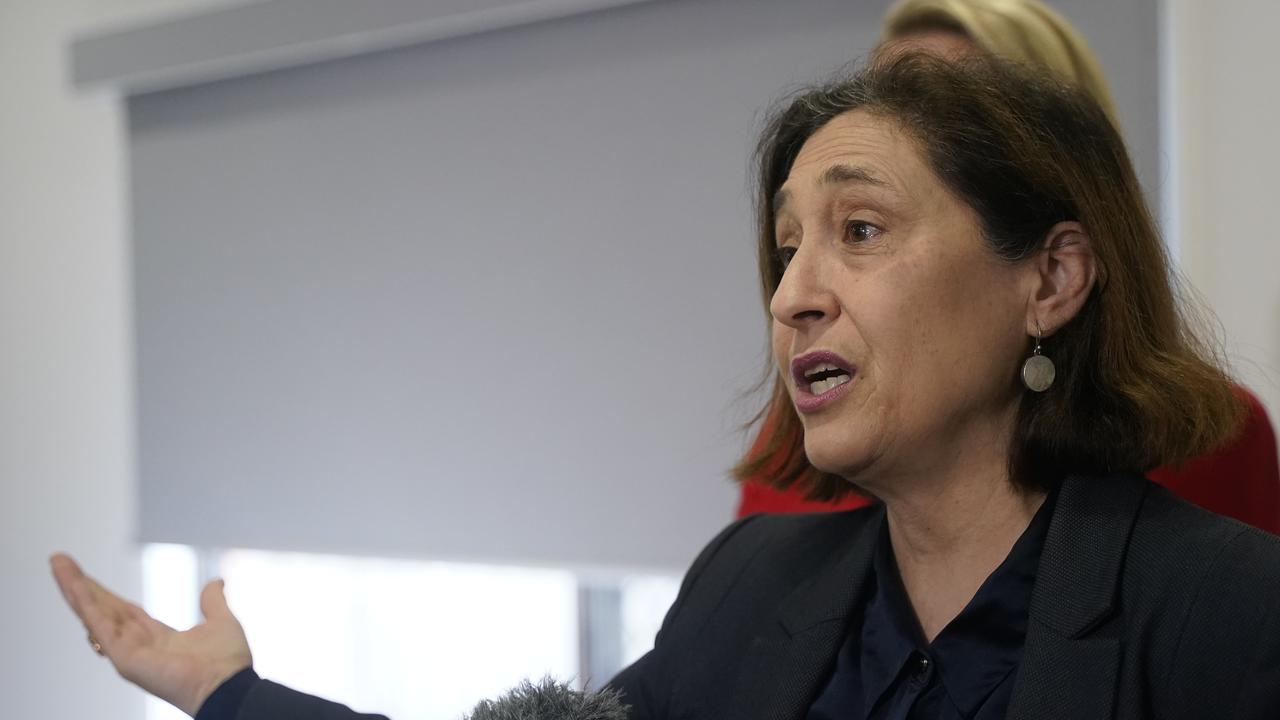Early autism spotters could help save NDIS, says Thrive by Five
Early educators should be trained up to identify children with autism and help with early interventions that could stop them ending up on the NDIS, a peak childcare body says.

Early educators should be trained up to identify children with autism and help with early interventions that could stop them ending up on the NDIS, a peak childcare body headed by a former Labor premier will tell the NDIS Review.
The ballooning number of young people reliant on the $30bn a year scheme has been identified as a major challenge to its sustainability, with more than 10 per cent of all five to seven year old boys currently on the NDIS.
Thrive by Five – an initiative of Andrew and Nicola Forrest’s Minderoo Foundation – will tell the NDIS Review the early learning sector should play a bigger role in supporting children with disabilities.
“Even before a diagnosis is made, people in those settings with the appropriate training can identify the signs and make the appropriate adjustments to their practice, communicate that to parents and make a profound difference,” Thrive by Five’s Jay Weatherill, told The Australian.
“You can unlock entirely different trajectory for that child.”
The prospect of early intervention for children with developmental delays has been raised by the government as a potential way of reducing the pressure on the NDIS.
NDIS Minister Bill Shorten earlier this year revealed the government would fund a three-year program trialling early intervention for children with signs of autism, after research from the Telethon Kids Institute showed such pre-emptive approaches reduced autism symptom severity and a reduction in the formal diagnosis of autism.
“Early intervention I think is something we can do better,” Mr Shorten said in an address last month.

“It‘s remarkable, almost half the number of participants on the scheme of the nearly 600,000 people are under 18 and … a sixth of the scheme (participants) are under 7.”
Mr Weatherill - a former South Australian Labor Premier - said that on top of training early educators to pick up children with developmental delays, governments should consider co-locating services like speech pathology and psychiatry in early learning centres.
“Service integration is based on this idea that if you create a more convenient place for parents and children, they’re more likely to use them,” he said.
“If you had an inclusive early childhood education system and all the other systems like health … that can step up to play an important role in the lives of children and their families, then that would mean that NDIS would be more effective.”
The calls for service integration and more training for early educators was backed by 23 other organisations, who signed a Thrive by Five communique that laid out how to better support children with disabilities.
Mr Weatherill confirmed that communique and the key initiatives within it would form the basis of Thrive by Five’s submission to the NDIS Review, which is due to report back with its findings by October.
However, the United Workers Union raised concern with the prospect of more pressure being put on the early educator workforce, which was already struggling to keep up with demands.
“Workloads for educators are already unacceptably high,” UWU early education director Sarah Gardner said.
“Any move to place even greater expectations on educators in early intervention would need to be accompanied by significant funding for additional staff, paid training and paid time to recognise all the work that educators and service leaders already do supporting children and their families to navigate this space.”
The government has signalled more support for disabled Australians from state governments and mainstream systems like health and education is needed to stop families seeing the NDIS as their only option for care.
Mr Shorten has declared “the states can’t have it both ways” and retreat from supporting people with disability outside the scheme while also diminishing their contribution to the NDIS.





